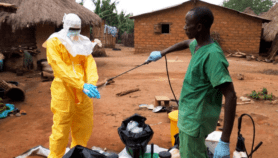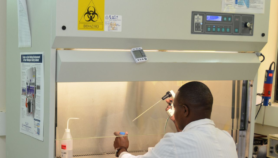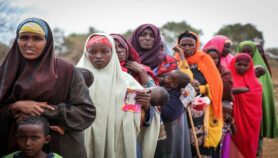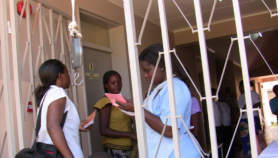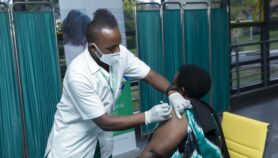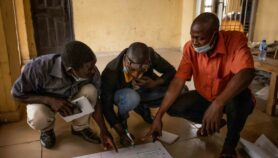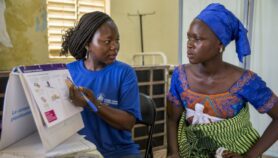14/04/21
Top Tanzania scientist says COVID-19 vaccine ‘experimental’
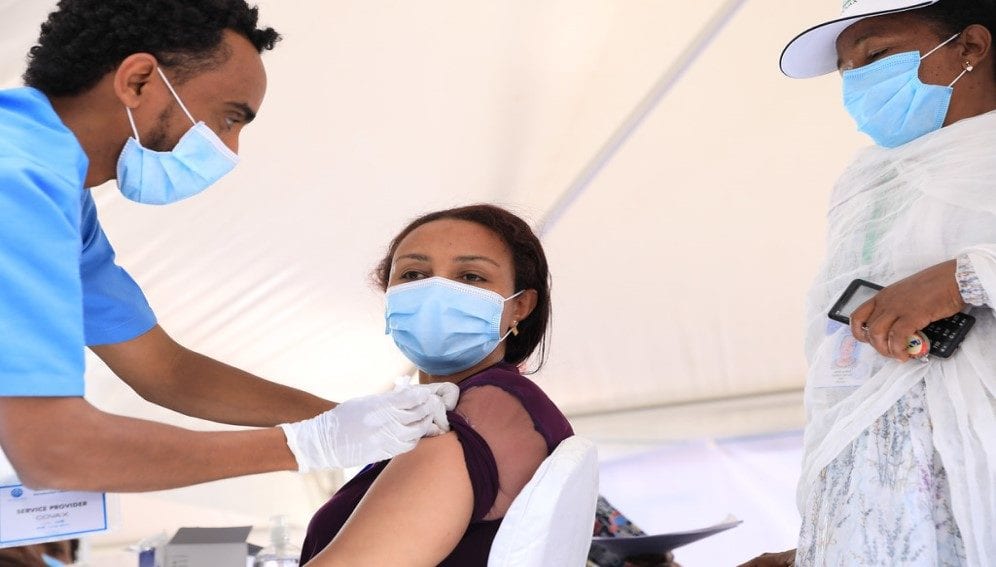
By: Syriacus Buguzi
Send to a friend
The details you provide on this page will not be used to send unsolicited email, and will not be sold to a 3rd party. See privacy policy.
While Tanzania’s new President Samia Suluhu Hassan has said she will set up a COVID-19 oversight committee, vaccine skepticism from one of the country’s leading scientists could continue to damage confidence in the jabs, say public health observers.
Hassan said the committee would advise the government on how to approach issues surrounding COVID-19 vaccine hesitancy and behavioural change. The country’s late President John Magufuli denied the virus was present in Tanzania until shortly before his death in March.
“Tanzania is not an island. We are part of the world. Let’s use our own experts to come up with a well-researched approach to this pandemic. As a country we can’t remain undecided about this pandemic,” Hassan said on 6 April during a ministerial inauguration ceremony in Dar es Salaam.
“I know a vaccine is a game-changer in fighting an incurable disease. But the science behind this COVID-19 vaccine is incomplete.”
Yunus Mgaya, National Institute for Medical Research in Tanzania
But, health advocates fear that remarks by Yunus Mgaya, the head of Tanzania’s top medical research institution, could deepen COVID-19 vaccine hesitancy in the country.
“I know a vaccine is a game-changer in fighting an incurable disease. But the science behind this COVID-19 vaccine is incomplete,” said Mgaya during a symposium on African awareness and COVID-19 attended by mainly university students and streamed live on 7 March.
Mgaya, a marine biology professor and director general of Tanzania’s National Institute for Medical Research, said that the COVID-19 vaccines were “rushed’ by pharmaceutical companies for commercial interests.

His remarks, issued in the national language Swahili, went viral on social media, with some Tanzanians agreeing with his position.
When asked by SciDev.Net whether his remarks could lead to COVID-19 vaccine hesitancy among the public, Mgaya said: “The urgency to push the vaccines to the mass consumption phase does not make them non-experimental.”



Deus Kitapondya, a specialist in emergency medicine formerly with the Muhimbili University of Health and Allied Sciences, Tanzania, said: “Such a person from a respected research institution doubting vaccines means that most people will believe him and hesitate to engage in vaccination in case Tanzania makes such plans.”
Inclusive committee
Infectious disease and public health specialists are pinning their hopes on the new national COVID-19 committee to boost control measures and improve the country’s response to the pandemic.
Shadrack Mwaibambe, president of the Medical Association of Tanzania, says that the committee should include civil society, medicine and public health specialists, legal and communication experts to address the range of challenges the country faces.
“At this point, a COVID-19 vaccine is inevitable,” said Mwaibambe.
“There should not be more debate on whether we need a vaccine or not. I would suggest that the committee to be formed by the President should include many sectors. That’s how we can deal with the problem, going forward,’’ he said during a televised interview (Azam TV) on 7 April.
Maria Sarungi, the founder of Change Tanzania, has been running an online advocacy campaign to combat COVID-19 denial. She highlights the need to follow scientific evidence to tackle the pandemic and boost vaccine confidence.



“Whether the new president will follow the science depends on how much she can get control of the government,’’ Sarungi added.
Norman Jonas, a public health advocate and a tutor in internal medicine at Kilimanjaro Christian Medical College in Tanzania, called for a more transparent environment and an open space for science.
“There have been many flaws in terms of how the country managed behavioural change communication during this pandemic. As a result, people still hesitate to follow basic health rules. If this is managed well, COVID-19 is preventable,’’ he said.
Eric Boniface, a resident of Dar es Salaam, still fears the worst could happen if people continue believing that COVID-19 does not exist.
“I still see lots of people posting pictures of their loved ones who have died. Most of them say they died after experiencing breathing difficulties,” he said. “I believe the virus still exists but only a few people care about social distancing or wearing face masks.’’This piece was produced by SciDev.Net’s Sub-Saharan Africa English desk.





